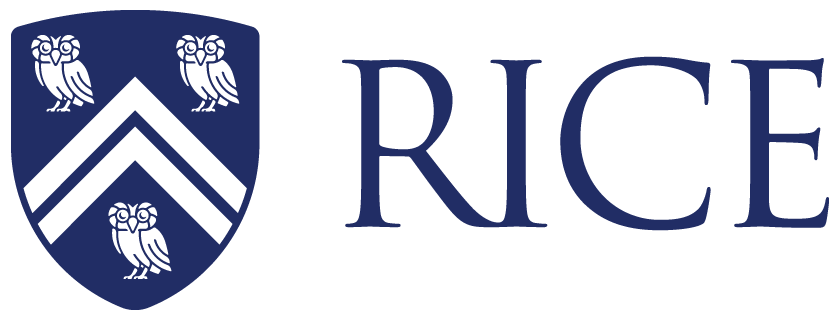- MST Program
- Advisory Council & Educational Professionals
- Application
- Courses
- ASTR502 (Fall 2025)
- ASTR503 (Spring 2026)
- ASTR530 (Spring 2025)
- PHYS501 (Fall 2024)
- Requirements
- Workshops
- Teacher Resources
- Mailing lists
- Rice Education Sites
- Center for Education
- K-12 Initiatives at Rice
- Rice School Mathematics Project
- Office of STEM Engagement
- Teacher Education at Rice
- Links
- Rice Physics & Astronomy
- Rice Space Institute
- Rice Space Science Outreach
Contact Information
Dr. Patricia Reiff | reiff@rice.edu
(713) 348-4634
Rice Space Institute, MS-108
Rice University
6100 Main Street
Houston, TX 77005-1892
Master of Science Teaching Program : Requirements
Each candidate for the Master of Science Teaching (MST) will specify a major area of concentration (e.g. middle school science, Astronomy, Physics, IPC (Integrated Physics and Chemistry), or Informal Science). Each student will work with his or her committee to create a plan of study that is best able to yield improvement in content knowledge and skills. Students also desiring certification must work with the educational certification officer to ensure that their program meets those requirements; however, preservice teachers who desire only certification should apply to the M.A.T. program instead. No requirement for a fulltime semester on campus; however, students are encouraged to come to campus as often as possible to check for mail, consult with graduate coordinator, participate in seminars, etc.
Content Courses: At least 15 hours in content or content/skills combined courses at the 500 level or above. At least 9 of the hours must be directly related to the student's area of concentration.
Content, Skills or Education Courses: At least 3 additional hours in content, skills, or education courses at the 500 level or above. Up to six hours may be transferred in from other graduate institutions.
Research or Practicum: Up to 12 hours can be research (educational or scientific) or practicum teaching. Students are expected to take at least three hourse of graduate research or practicum, developing a research project in conjunction with a science or educational advisor. (Warning - when registering, be sure to specify the number of hours desired or it will default to only one!)
Capstone Project/: the candidate will create a (non-thesis) written capstone project. This can be in educational research, science research, curriculum development, or curriculum review. See the Project Rubric and the Project Template (word) or Project Template (pdf) for more information.
Many teacher-focused courses already exist on campus, and additional other courses will be developed as appropriate for the program. High school teachers would be expected to take one or more courses from the regular upper-level Rice offerings, as their schedules permit and their needs demand, but we recognize that most teachers will not have the background to compete with research graduate students in upper division science courses. Thus special courses designed for teachers are available.
Sample Content or Content/Skills courses already routinely offered for teachers (Many are seminars and may be repeated for credit, since the content changes from year to year):
- ASTR 502 : Teaching Earth and Space Science
- ASTR 503 : Astronomy for Teachers
- ASTR 530 : Teaching Astronomy Laboratory
- PHYS 501 : The Physics of Ham Radio
- Other PHYS or ASTR upper-level content courses, as appropriate
- Other NSCI, EDUC, MATH, ESCI, BIOC, EEB, CHEM or PFDV content courses, if approved by the student's committee and the department
Skills/Practicum/Research courses (sample):
- EDUC 519 : Teaching and Learning with Inquiry
- EDUC 520 : Teaching Diverse Learners
- EDUC 563 : Theory and Methods of Mathematics
- EDUC 565 : Theory and Methods of Science
- PHYS 800 : Graduate Research or Practicum

